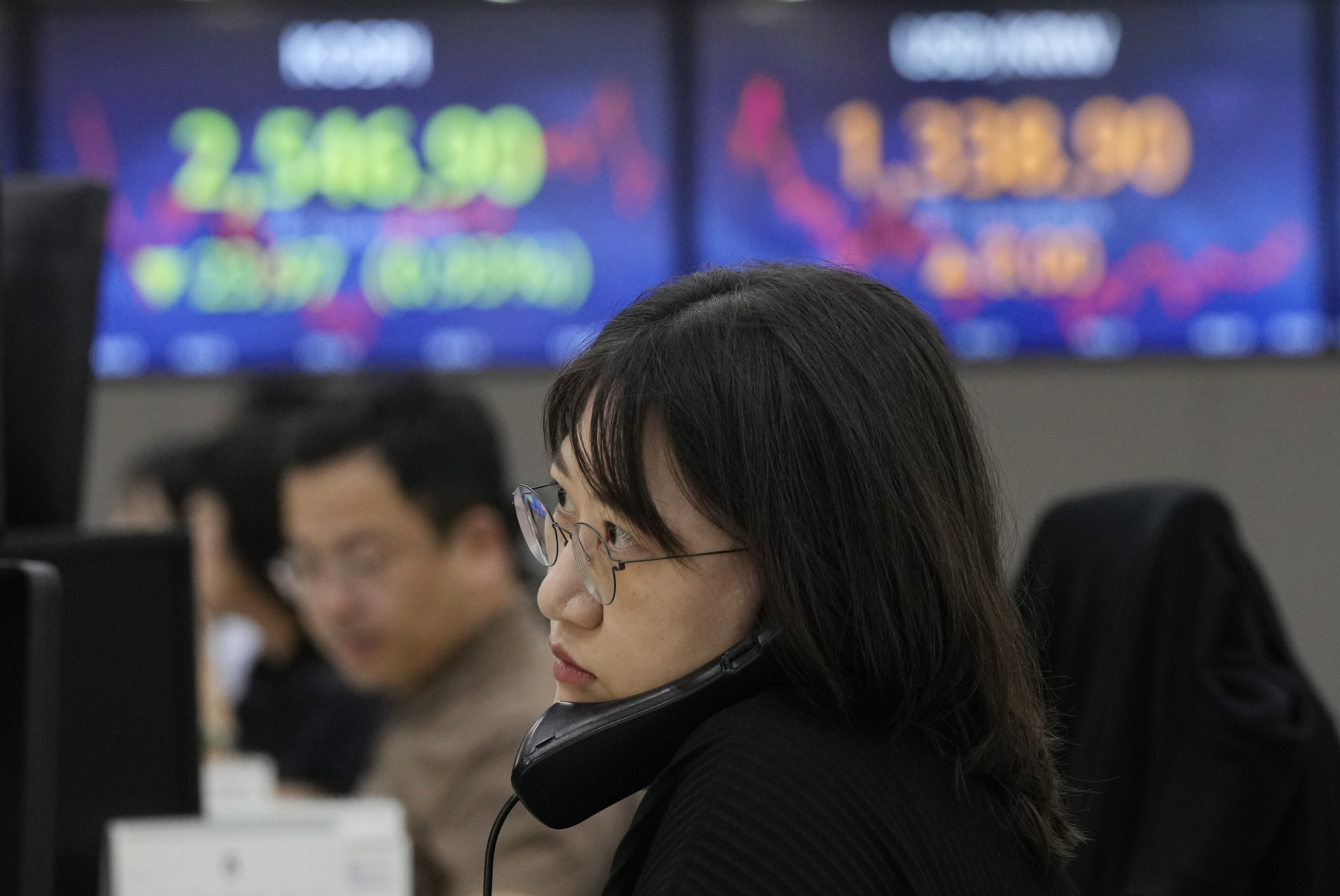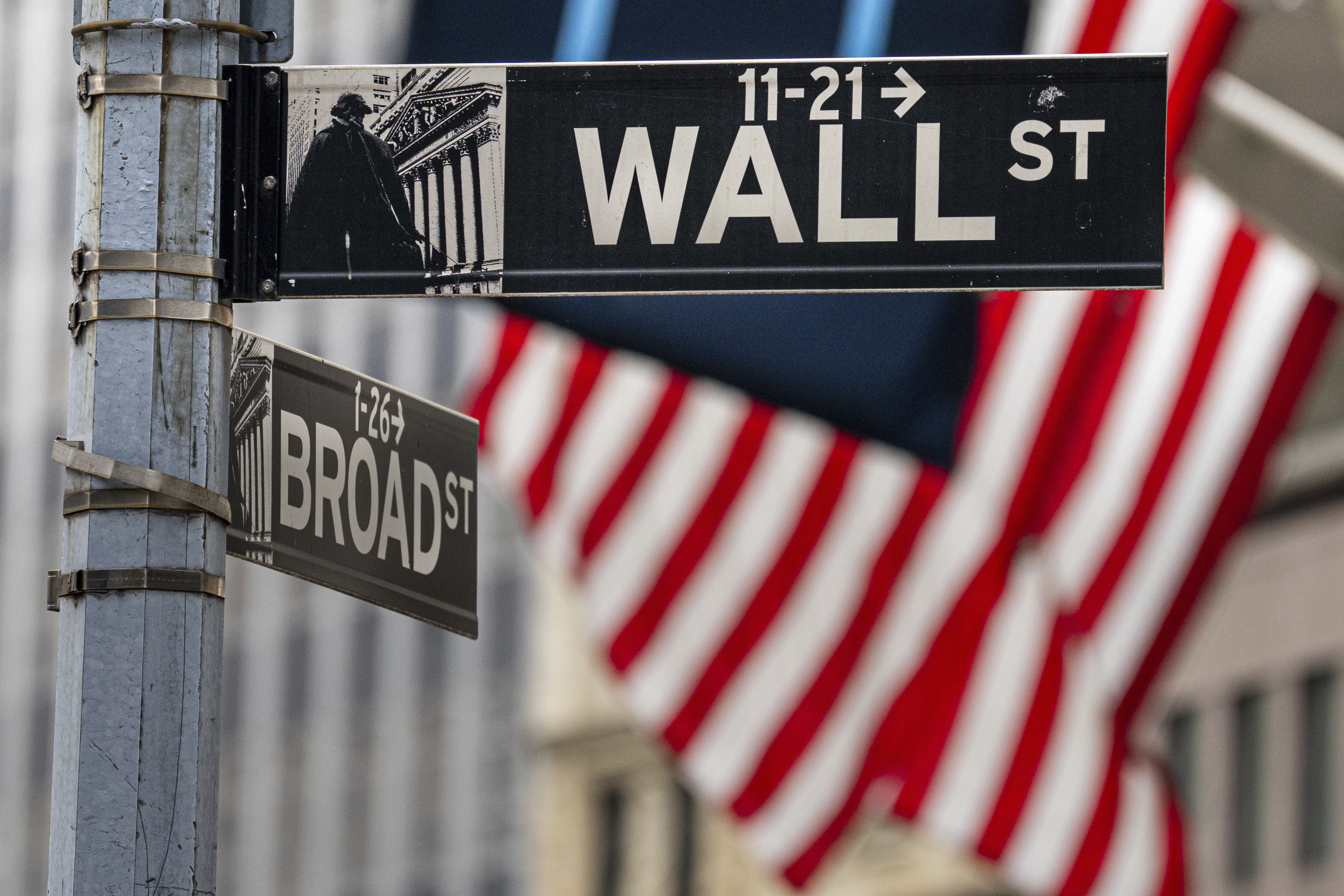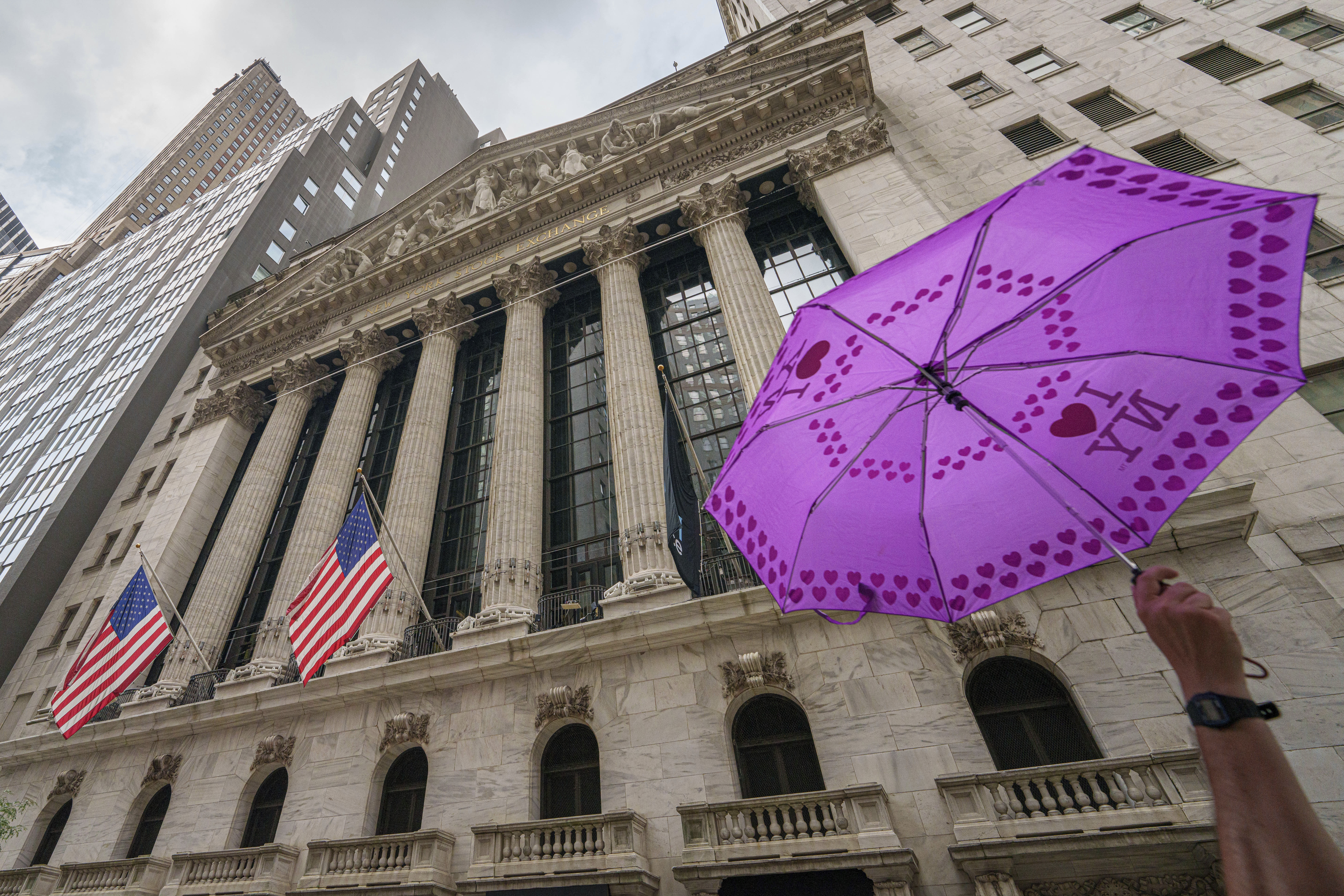NEW YORK — Wall Street weakened Wednesday to worsen what’s already been a messy August.
The S&P 500 fell 33.53, or 0.8%, to 4,404.33, following up on its prior day’s tumble of 1.2%. The Dow Jones Industrial Average lost 180.65 points, or 0.5%, to 34,765.74, and the Nasdaq composite dropped 156.42, or 1.1%, to 13,474.63.
Increased pressure came from the bond market, where yields have recently neared their highest levels since the 2007-2009 recession sent interest rates collapsing. Yields climbed more following the afternoon release of the minutes from the Federal Reserve’s latest meeting.
The minutes suggested Fed officials are unsure about their next move after catapulting the main interest rate they control to its highest level in more than two decades. Hopes had been rising among investors that last month’s rate increase by the Fed would prove to be its last.
Some analysts took the minutes as a suggestion that another rate increase is possible, while others said it shows the Fed is likely done with its rate raising strategy.
“Ultimately there were no major surprises in the minutes, as the Fed is expected to remain data dependent when determining the path of monetary policy through the end of the year,” said Sam Millette, fixed income strategist for Commonwealth Financial Network.
Big technology stocks and other investments seen as particularly vulnerable to higher rates were some of the day’s heaviest weights on indexes. Tesla fell 3.2%. Facebook’s parent, Meta Platforms, dropped 2.5%, and Amazon fell 1.9%.
Wall Street has generally been retrenching this month on several concerns, including worries that torrid gains made this year through July were overdone and that interest rates may stay high for longer.
A surprisingly strong report on sales at U.S. retailers helped cause Tuesday’s slide in stocks, as it suggested upward pressure on inflation still exists. While strong economic reports calm long-held worries about a possible recession, they could also end up keeping rates higher for longer.
Data released Wednesday showed that U.S. industrial production improved by more than economists expected last month. Homebuilders also broke ground on more homes.
Treasury yields have been generally climbing as reports paint a picture of a still solid economy. That pressures stocks because when safe bonds are paying more in interest, investors feel less pressure to pay high prices for stocks and other risky investments.
The yield on the 10-year Treasury rose to 4.26% from 4.22% late Tuesday. The 10-year yield helps set rates for mortgages and other important loans.
The 10-year Treasury Inflation Protected Security, which takes inflation into account, is at its highest level since 2009, according to Tradeweb.
On Wall Street, Intel’s stock fell 3.6% after it and Tower Semiconductor agreed to call off Intel’s $5.4 billion buyout of the Israeli chip maker. The deal faced resistance from Chinese regulators.
Shares of Agilent Technologies fell 3.4% despite reporting stronger profit for the latest quarter than analysts expected. Its forecasts for upcoming results, including revenue for the full year, fell short of expectations. It pointed to a challenging economy, particularly in China.
Target and TJX, the company behind T.J. Maxx and Marshalls, helped to limit the market’s losses. Target shares rose 3%, and TJX climbed 4.1% after both reported stronger profit for the spring than analysts expected.
Information for this article was contributed by Yuri Kageyama and Matt Ott of The Associated Press.
 A currency trader watches monitors at the foreign exchange dealing room of the KEB Hana Bank headquarters in Seoul, South Korea, Wednesday, Aug. 16, 2023. Asian shares declined Wednesday amid worries over discouraging data on China, as well as over the future of the U.S. economy. (AP Photo/Ahn Young-joon)
A currency trader watches monitors at the foreign exchange dealing room of the KEB Hana Bank headquarters in Seoul, South Korea, Wednesday, Aug. 16, 2023. Asian shares declined Wednesday amid worries over discouraging data on China, as well as over the future of the U.S. economy. (AP Photo/Ahn Young-joon) Street signs at the center of the New York City financial district frame the U.S. Flags flying from the front of the New York Stock Exchange, Wednesday, Aug. 16, 2023. Wall Street is drifting Wednesday and stocks are mixed a day after their latest tumble in what’s been a messy August. (AP Photo/J. David Ake)
Street signs at the center of the New York City financial district frame the U.S. Flags flying from the front of the New York Stock Exchange, Wednesday, Aug. 16, 2023. Wall Street is drifting Wednesday and stocks are mixed a day after their latest tumble in what’s been a messy August. (AP Photo/J. David Ake)











